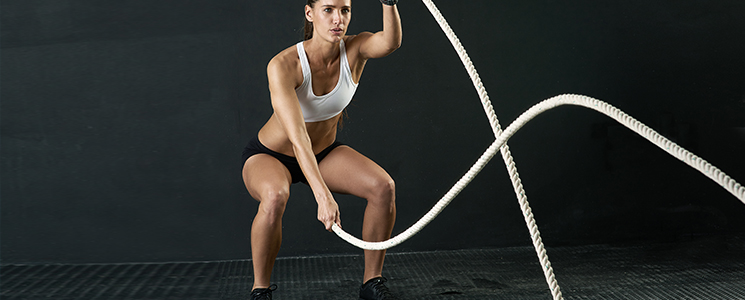Umbilical Hernia Treatment in NYC

If you’re suffering from an umbilical hernia, schedule a consultation with world-renowned hernia surgeon Dr. Mark Reiner for diagnosis and treatment. Umbilical hernias may heal on their own, but infants older than four and adults may require surgical repair.
Dr. Reiner is a leader in minimally-invasive hernia repair and has performed thousands of successful hernia operations in his lifetime. Learn more about symptoms and treatment of umbilical hernias below. Call (212) 879-6677 today to schedule your personalized umbilical hernia consultation in New York City and the surrounding areas!
Patient Testimonial
“Dr. Reiner is compassionate, brilliant and his office is run extremely efficiently and with great care. He and his office are the best!” – G.L.
Click here to read more reviews.
What is an umbilical hernia?
An umbilical hernia is a hernia that forms near your belly button. It occurs when parts of the intestines or other abdominal organs begin to push through the umbilical opening. Although umbilical hernias do sometimes develop in adults, the condition mainly affects infants and is most noticeable when the newborn cries or strains their abdomen in other ways. Umbilical hernias in infants usually do not cause any pain and tend to close within the initial years of life. However, if the hernia is still present during adult years, surgery may be recommended.
What causes an umbilical hernia?
Before you’re born, you have a hole in your abdominal wall muscles. This opening, which usually closes up after birth, is located near the belly button and is where the umbilical cord traveled through. When this opening does not properly close back up, it may cause a hernia to be present at birth or at a later stage in life.
Umbilical hernias that occur in adulthood are usually acquired, meaning they are the result of excess pressure inside the abdomen. Umbilical hernias in adults may be caused by the following factors:
- Being overweight or obese
- Having numerous pregnancies
- Containing fluid in your abdominal cavity
- Having previous stomach surgeries
- Receiving recurrent peritoneal dialysis
What are the symptoms of an umbilical hernia?
The main symptom of an umbilical hernia is a soft bulging mass near your belly button. Typically, umbilical hernias will not cause discomfort or pain during infancy, and may only be noticeable when the newborn child coughs, cries, or engages in other activities that strain the abdomen. In adults, umbilical hernias may present symptoms of discomfort.
Umbilical hernias may lead to certain complications, some of which may be life-threatening and may require surgery. Contact your doctor immediately if the following symptoms occur:
- Pain
- Hernia is tender to the touch
- Hernia becomes swollen or discolored
- Vomiting
How is an umbilical hernia diagnosed?
In order to diagnose an umbilical hernia, a physical exam by a doctor will be needed. During a physical, your doctor will examine your belly button and feel the affected area. If no hernia is felt during the physical examination, additional testing, such as an ultrasound, CT, or MRI, may be required for further diagnosis.
How is an umbilical hernia treated?
In infants, an umbilical hernia will usually close on its own by the time the child is two years old. For both adults and children, your doctor can try to move the umbilical hernia back into the abdominal cavity without surgery. For adults whose hernia can’t be manually pushed back into the abdominal cavity, hernia repair surgery is usually recommended in order to help avoid future complications.
Surgery for infants with an umbilical hernia will usually only occur under the following circumstances:
- Hernia is causing pain
- Hernia is greater than an inch
- Hernia is increasing in size
- Hernia does not decrease by the time the infant is two
- Hernia does not go away by the age of four
- Hernia becomes incarcerated
- Hernia becomes strangulated
Can an umbilical hernia lead to complications if left untreated?
Left untreated, an umbilical hernia may lead to certain complications, such as strangulation, which means the hernia is cutting off blood supply to your intestines. A hernia can become strangulated when it becomes trapped, or incarcerated, in the abdominal wall muscle opening. If strangulation occurs, the hernia may harden and become tender.
Strangulation may be life-threatening and may require surgery. Contact your doctor immediately if you notice any of the following symptoms:
- Intense stomach pain
- Sudden pain or tenderness of the affected area
- Nausea
- Vomiting
- Fever
- Rapid heart rate
Call Dr. Reiner For Your Umbilical Hernia Consultation In NYC!
If you are suffering from symptoms of an umbilical hernia, the first step to improving your health and getting back to your regular pain-free life is to schedule a consultation with an experienced hernia doctor. Dr. Mark Reiner is a top surgeon in the field of minimally invasive hernia repair, and has performed thousands of successful hernia operations. Contact Dr. Reiner today by calling 212.879.6677 or filling out the form on this page.
